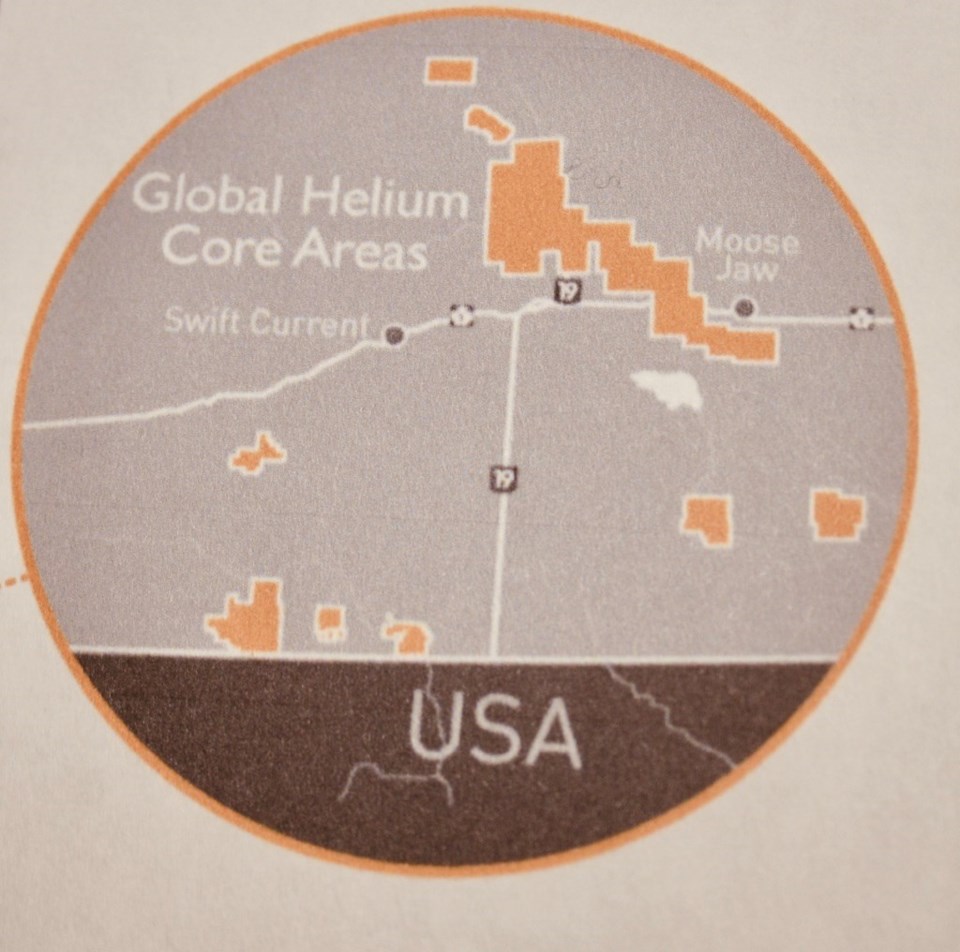MOOSE JAW — The Moose Jaw region will be part of the developing helium industry if a Calgary-based exploration company is successful.
Global Helium has acquired over 1.5 million acres of helium leases in Saskatchewan including a core area of 835,000 aces north and south of Moose Jaw.
The local leases extend from Riverhurst southeast to just north of Old Wives Lake.
The company is in the midst of a $2.4 million program doing seismic work, acquiring existing seismic work, evaluating the results and drilling a 2,000 metre test well.
The area was chosen as it sits in the “helium fairway” of this region, CEO and President Mike Siemens said in a news release.
The fairway ranges from northern Montana and southeastern Alberta to southern Saskatchewan.
A 17,000 acre area near Lawson west of Central Butte is a prime target, based on an oil and gas exploration well drilled by Imperial Oil in 1944. That well found no oil or natural gas but flowed non-combustible gas with 95 per cent identified as nitrogen.
Technology either wasn’t available or wasn’t used to identify the other five per cent. Global believes much of it is helium.
Seismic work has outlined an apparent structural trap for helium on the acreage near Lawson. Another potential structural trap was identified on the nearby Vermilions Hills lease.
The company has $9.5 million cash to explore and develop helium.
Global also has a 435,000 acre block lease 150 km south of Regina and a 275,000 acre lease along the Montana border east of Climax in an area where other explorers have found helium.
The Saskatchewan Government has an incentive program paying back up to $5 million capital and operating costs for exploration with only a five per cent royalty on production.
Helium prices have more than doubled since 2019 when the United States ceased selling helium from federal lands. Those lands produced 21 per cent of global helium output.
Ron Walter can be reached at [email protected]




